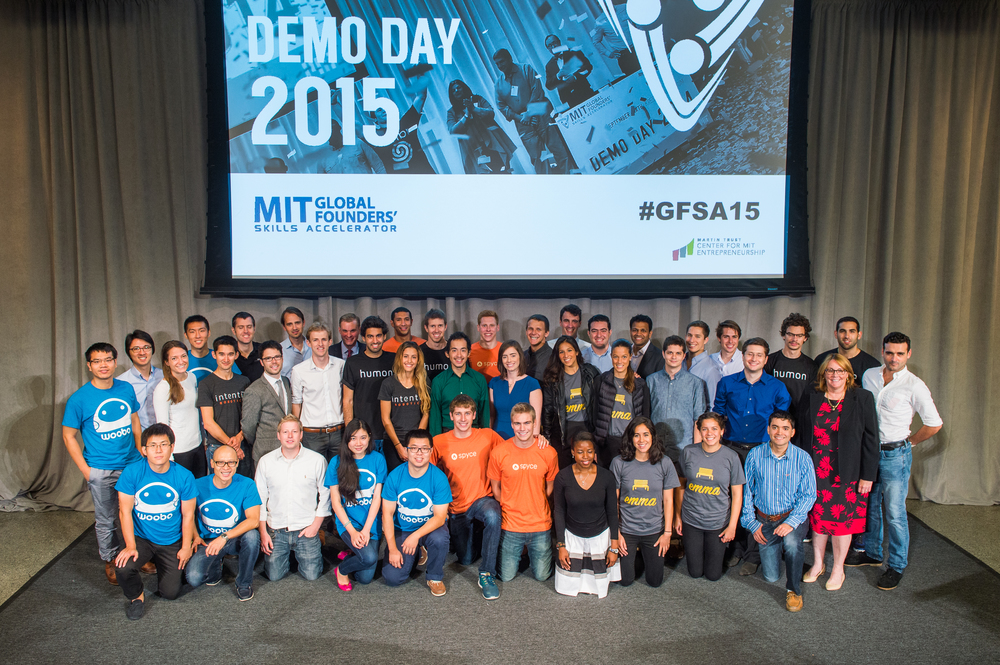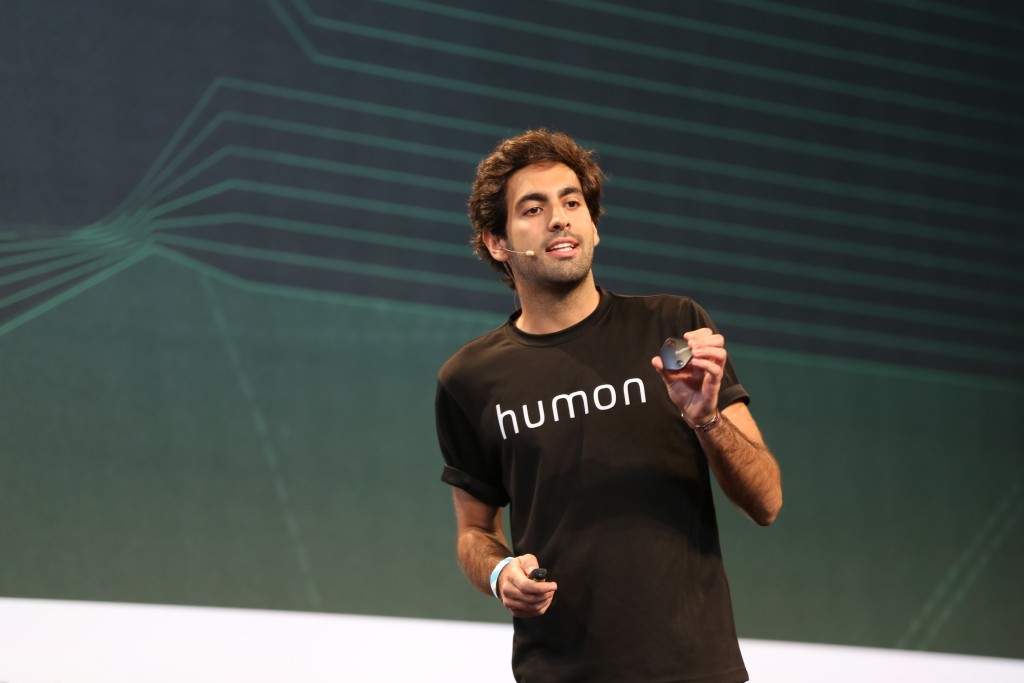Hasier Larrea – Founder, Ori Systems, and Alessandro Babini – Co-founder, Humon both participated in the 2015 MIT Delta V, an educational accelerator for MIT student entrepreneurs to help them build viable ventures. It is a capstone educational opportunity for MIT entrepreneurs before they launch into the real world. But the real world was one in which the founding teams would be split apart, the lucky ones staying in the US, the others being deported. As so many promising entrepreneurs have, they turned to the VDC for help. Here are their stories.
Hasier Larrea – Founder, Ori Systems
“It seemed too good to be true, and we were skeptical at the beginning. But a couple of months after we engaged, we had the visa we needed. Now we are full of excitement about the prospects of our endeavor.”
It was about a year ago when the VDC’s William Brah wrote a letter to the U.S. Citizenship and Immigration Services describing our company and its connection to the mission of the Venture Development Center, in support of a cap exempt H-1B visa petition for our founding team member Ivan Fernandez de Casadevante. Now, a year later, not only did Ivan get a visa, but Ori applied for and obtained an H-1B in the national lottery for Ivan and we are graduating from the VDC full of excitement about the prospects of our endeavor.
As an international entrepreneur myself (Basque Country, Spain), I know how tough and challenging it is to create a business and bring a new technology to the market, while at the same time having to worry about your immigration status. That clock that is ticking, that clock that tells you there is a deadline. Not a product deadline, not a fundraising milestone, a day where you should either leave your dream or try it somewhere else. It really does feel unfair, very unfair, when you are putting your soul and heart into something that could potentially create so much wealth and prosperity in the country, and at the same time, you see how there are so many barriers for you to even try.
I’ve been there. Twice. First with my own case, as a researcher at the MIT Media Lab, but more recently, as CEO of Ori when we were trying to keep one of our core team members in the country, Ivan.
Ori was born as a spinout of the MIT Media Lab, based on years of research on how to bring robotics to architecture and real estate. I led the research team at MIT, and had the chance to work with the amazing engineers that formed the founding team behind Ori. One of those young engineers was Ivan.
When you are a team of 4-5 people, there is no room for inefficiencies. This has to be a perfect machine in which every component works at its 100%, so that the other team members can perform equally. Right off the bat, we encountered the challenge of immigration policy with Ivan. He was a visiting student at MIT, and as a visiting student, he did not even have the 1-year extension that most MSc and PHD students have. We asked for all the advice we could, but honestly there was no real alternative. It was a feeling of impotence.
Then we heard about the VDC and the Global EIR program through a common international friend. It seemed too good to be true, and we were skeptical at the beginning that it would work out in practice. There were not many prior cases, as the program was just starting.
A couple of months after we engaged with William, not only we had the visa we needed, but we were also part of the VDC community. We raised $750,000 in seed capital. And this year, we launched our alpha and beta tests in apartments in Boston and we released our new brand with great media coverage.
Now we are ready for the next stage of growth and we can only look back and be grateful to William and his team, who gave us the opportunity to keep our core team intact, at a time where many “small companies that dream big” encounter their first real obstacle in the form of outdated immigration policy.
Alessandro Babini Co-founder, Humon
It was two weeks ago when I learned my H-1B visa petition was approved. It was a big relief as I was literally being kicked out of the country…
I was born in Paris to a French Mother and an English educated, Italo-Lebanese father and was immersed in an international environment since my earliest age. I attended a French/English bilingual school in Paris through to my baccalaureate and then moved to London to complete a Bachelor of Science in Mathematics and Statistics at the London School of Economics. I then completed a Masters in Management from HEC Paris before moving back to London to work for a Venture Capital fund with a focus on consumer startups. After realizing that I was sitting on the wrong side of the table (I wanted to be part of the “amazing people building amazing things”), I moved to Boston for the MSMS program at MIT Sloan from which I graduated in 2015. This is where Humon started and why I am in Boston today.
Humon started as a market research project at MIT Sloan where the premise was that technology and biology would intersect and create something “amazing” to help people understand more about their own bodies. It seems crazy that when you’ll wake up tomorrow morning and drive to work, you will know more about your car and what to do to keep it running its best, than your own body…
As a result, the market research was structured around a single question that we asked more than 300 people from different markets (Military, ICU Patient, Elderly, Children, Athletes, etc.): “What do you need to know about your body today that would change your life?” We received a lot of different answers and had a hard time finding a clear use case behind them until we started speaking to athletes and endurance athletes. To that same question we could easily identify a pattern: “my lactic acid threshold”. This is not what we do today, but it is the underlying problem that we solve: Helping athletes understand how hard they can push themselves but without exceeding the limits of their body.
My OPT was ending August 1st 2016. I heard about the VDC through Mohit Kansal (another Global Entrepreneur-in-Residence) who was part of the MIT Accelerator (Delta V) with me. He connected me to William Brah who I met a few weeks later. We decided to wait until April/May to file the H-1B petition, which gave the company some time to get more investor funding which would increase my chances of getting the visa approved. (Humon raised a $950k seed round on May 24, 2016. Accomplice led with Boston Syndicates and Dorm Room Fund participating.)
The VDC has always been of tremendous help. First of all, the VDC allowed to me to stay in Boston and help build Humon into a (hopefully) successful company. I was literally being kicked out of the country… Second, the VDC has introduced me to amazing UMass students, a few of which we are considering working with in the long term.
As an early stage startup, it is critical that the team is together on a daily basis in order to work productively. More specifically, Boston has been great for us. Our investors, advisors, mentors, labs, MIT, UMass and many customers are here. It’s also one of the best scenes for biotech and hardware startups. The first few years of a startup are the riskiest and hardest and we’re extremely happy and proud to have the support of the VDC!



